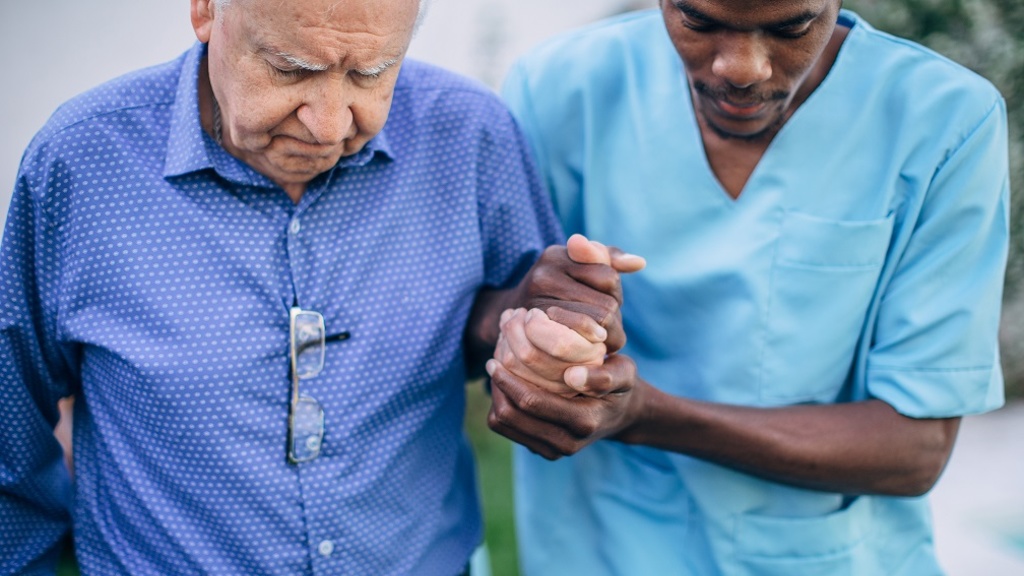What Matters Most: CNA Training
What Matters Most is a series of short training programs intended to help build skills among those employed in nursing homes and other long-term care settings. It is based on the Age-Friendly framework, to advance person-centered care and improve the quality of life of older adults and those who care for them. The motto of this series is "What is good for the resident is also good for daily caregivers." In other words, providing What Matters Most to the residents you care for makes your life better too.
This training is organized into 6 topics. Each topic has 3-parts:
- What Matters videos: These videos review Age-Friendly care and its essential role in person-centered care and quality of life for older adults.
- What Matters podcast: This podcast introduces real-life examples from experts of how Age-Friendly approaches may be used in long-term care settings.
- You Matter videos: These videos give you ways to think about how to apply Age-Friendly concepts in your work and personal life to support your health and well-being.
We recommend using this as a series, as content builds throughout the topics, but each topic can also be viewed independently if you prefer.
Estimated Time: 6 core modules totaling 3 hours + 6 1-hour ECHO videos
Program Outline:
Meet the Expert Team
Marianne Smith, PhD, RN, Associate Professor & Director of the Iowa Geriatrics Workforce Enhancement Program, the University of Iowa, College of Nursing
Shawna Wright, PhD, LP, Director, KU Center for Telemedicine & Telehealth Clinical Assistant Professor, Dept. of Psychiatry and Behavioral Sciences, The University of Kansas Medical Center
Kim Bergen-Jackson, PhD, RN-BC, LNHA, Administrator, Oaknoll Retirement Residence
Tanya Comer, MSN, RN, Executive Director, Health Tech Associates
Read by Monté J. Howell, University of Iowa





